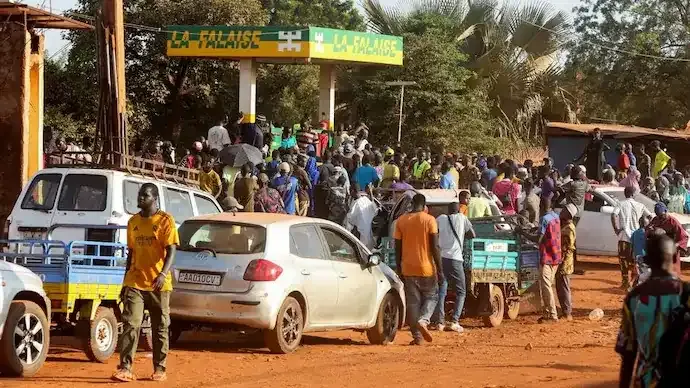Shopping cart
Your cart empty!
Terms of use dolor sit amet consectetur, adipisicing elit. Recusandae provident ullam aperiam quo ad non corrupti sit vel quam repellat ipsa quod sed, repellendus adipisci, ducimus ea modi odio assumenda.
Lorem ipsum dolor sit amet consectetur adipisicing elit. Sequi, cum esse possimus officiis amet ea voluptatibus libero! Dolorum assumenda esse, deserunt ipsum ad iusto! Praesentium error nobis tenetur at, quis nostrum facere excepturi architecto totam.
Lorem ipsum dolor sit amet consectetur adipisicing elit. Inventore, soluta alias eaque modi ipsum sint iusto fugiat vero velit rerum.
Sequi, cum esse possimus officiis amet ea voluptatibus libero! Dolorum assumenda esse, deserunt ipsum ad iusto! Praesentium error nobis tenetur at, quis nostrum facere excepturi architecto totam.
Lorem ipsum dolor sit amet consectetur adipisicing elit. Inventore, soluta alias eaque modi ipsum sint iusto fugiat vero velit rerum.
Dolor sit amet consectetur adipisicing elit. Sequi, cum esse possimus officiis amet ea voluptatibus libero! Dolorum assumenda esse, deserunt ipsum ad iusto! Praesentium error nobis tenetur at, quis nostrum facere excepturi architecto totam.
Lorem ipsum dolor sit amet consectetur adipisicing elit. Inventore, soluta alias eaque modi ipsum sint iusto fugiat vero velit rerum.
Sit amet consectetur adipisicing elit. Sequi, cum esse possimus officiis amet ea voluptatibus libero! Dolorum assumenda esse, deserunt ipsum ad iusto! Praesentium error nobis tenetur at, quis nostrum facere excepturi architecto totam.
Lorem ipsum dolor sit amet consectetur adipisicing elit. Inventore, soluta alias eaque modi ipsum sint iusto fugiat vero velit rerum.
Do you agree to our terms? Sign up

Five Indian nationals have been abducted in Mali, a West African nation reeling under a surge of violence linked to al-Qaida and ISIS-affiliated groups, officials confirmed on Saturday. The kidnapping occurred near Kobri, in western Mali, where the victims were working on a rural electrification project for an Indian firm.
According to local security sources, the abduction took place on Thursday evening when armed men ambushed their convoy along a road notorious for militant activity. The victims’ employer, which has several Indian nationals stationed across Mali, immediately halted all operations in the region and moved the remaining workers to the capital city, Bamako, for safety.
“We confirm that five Indian nationals have been kidnapped near Kobri. The rest of the Indian employees have been safely evacuated to Bamako,” said a representative from the company involved in the project.
No militant group has claimed responsibility so far, though authorities suspect the Group for the Support of Islam and Muslims (JNIM) — an al-Qaida-linked coalition — which has increased its footprint across Mali and neighbouring countries in recent months.
Mali, ruled by a military junta since 2021, has been at the epicentre of extremist violence that began after a Tuareg rebellion in 2012. The resulting instability allowed jihadist factions to seize control of large parts of the country’s north and expand into central regions.
The JNIM, alongside Islamic State in the Greater Sahara (ISGS), has imposed blockades, targeted infrastructure projects, and attacked both civilians and security forces. Its ongoing fuel blockade has paralyzed transport and deepened Mali’s economic crisis, leaving ordinary citizens without essential supplies.
Foreign workers, particularly engineers and contractors from Asia and the Middle East, have become frequent targets. In September 2025, JNIM militants kidnapped two Emirati citizens and an Iranian national near Bamako. They were freed only after a reported ransom payment of $50 million — a development that, analysts say, has emboldened armed groups seeking funding.
Since seizing power, Mali’s junta leader, Assimi Goita, has distanced the country from Western partners like France and the United States, turning instead to Russia’s Wagner Group for military assistance. However, the strategy has yielded limited success. Despite increased counterterrorism operations, extremist networks continue to expand, and violence has spilled over into Burkina Faso and Niger.
In areas under jihadist control, militants have reportedly imposed strict social codes, restricting women’s movement and mandating conservative dress. With several regions beyond state control, the fear of insurgents advancing toward Bamako has grown among residents and diplomats alike.
India’s Ministry of External Affairs is monitoring the situation closely and has sought updates through diplomatic channels in Bamako. Officials are coordinating with local authorities to secure the safe release of the abducted workers.
The abduction underscores the mounting risks for foreign nationals working in conflict zones across Africa, as jihadist networks exploit weak governance and international disengagement to expand their reach.
As Mali’s crisis deepens, the fate of the five Indians serves as a grim reminder of how terror-fueled instability threatens lives and development across one of the world’s most fragile regions.
13
Published: Nov 08, 2025